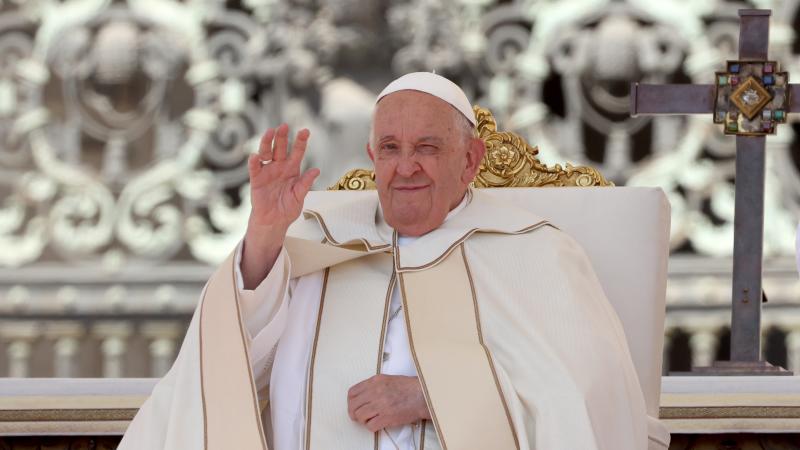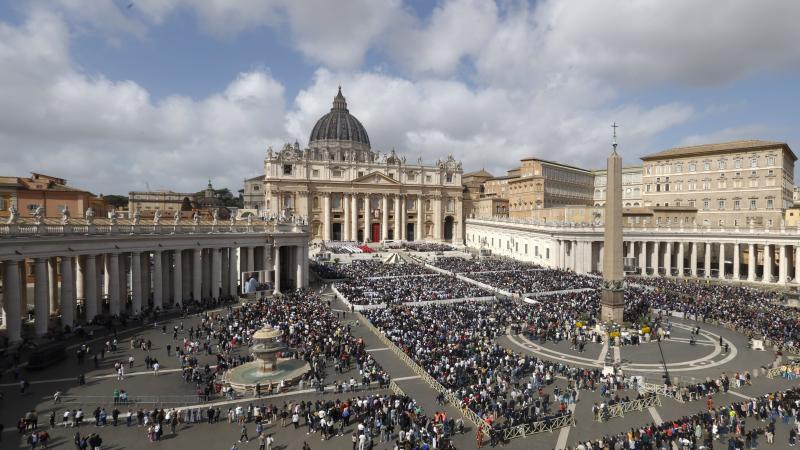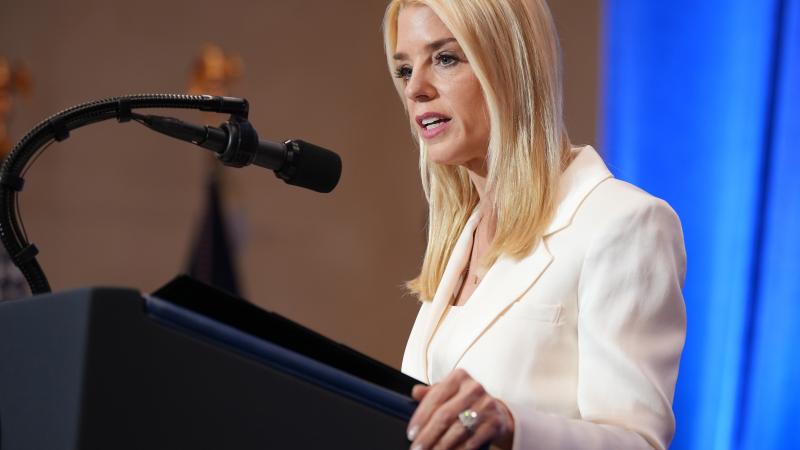Wealthy Washington D.C. suburb's no-exception LGBTQ curriculum faces headwinds at Supreme Court
Major religious groups, half the states and top legal scholars of religious liberty unite against Maryland's Montgomery County Public Schools, which refuses to notify parents when "Pride storybooks" are taught or let young kids opt out.
Public school districts across the country face a daunting challenge from the world's Abrahamic religions, their lobbying organizations, eminent legal scholars and half the states.
Friend-of-the-court briefs deluged the Supreme Court last week asking it to resolve a circuit split on parental rights in public education worsened by the 4th U.S. Circuit Court of Appeals, which ruled that Maryland's Montgomery County Public Schools does not burden parents' free exercise of religion by not notifying them of LGBTQ curricula or allow opt-outs.
"This outpouring of diverse support shows that parents, not the government, should have the final say on how their kids are introduced to complex topics of gender and sexuality," senior counsel Eric Baxter of religious liberty law firm Becket, which filed the SCOTUS petition last month on behalf of Muslim, Catholic and Orthodox parents, wrote in an X thread on the briefs.
The wealthy suburb of Washington, D.C., exposed children as young as 3 to "Pride storybooks" with sex workers, kink, drag, gender transitions and elementary-age same-sex romance, provoking fierce opposition from parents. The Council on American-Islamic Relations took a leading role organizing opposition and protests, in a rare break with Democrats and the ACLU.
Public records requests and litigation revealed that the purported concern behind the district's sudden decision a year and half ago to stop notification and opt-outs – logistical difficulty – was not reflected in internal communications, which instead trained teachers how to challenge students' beliefs and counter parental objections.
Another group of MCPS parents filed a brief saying the district has denied their opt-out requests, leaving their children at risk of instruction on "LGBTQ+ issues in what they believe is an inappropriate manner considering their children’s ages, personalities, and circumstances."
Most of the parents also believe the district's purpose is to "normalize and valorize alternative sexual behavior" in violation of their religious beliefs, they said.
University of Virginia emeritus law professor Douglas Laycock, celebrated by UVA as "the target of both the left and right in the culture wars" for his instrumental role in advancing religious liberty and gay rights in a 50-year career, is the most prominent name on a brief by legal scholars who focus on "the First Amendment Religion Clauses."
The 4th Circuit "epitomizes that confusion" in trial and appeals courts on how to apply Supreme Court precedent on "how– and when – to assess burdens on religious exercise," he wrote, joined by former 10th Circuit judge Michael McConnell of Stanford, George Mason's Helen Alvare, Notre Dame's Richard Garnett and Thomas Berg of the University of St. Thomas.
An MCPS administrator finally admitted that notification and opt-out let parents "undermin[e]" the district's "educational mission," while the trial court acknowledged "the point of the Board’s mandatory (and covert) readings is to 'influence' children" and the 4th Circuit admitted that younger children "are more likely to be impressionable," the scholars noted.
The burden on parental rights is "obvious" and "should not have been a close call," the brief says, given that "these forced readings … touch sensitive and deeply personal issues regarding sexuality and gender that have not traditionally been part of public school curriculum" and infringe on "the moral and religious instruction of many believers across many faiths."
By emphasizing the district didn't force children to "change" their beliefs or affect what parents teach them at home, the 4th Circuit ignored Supreme Court precedent on "indirect coercion on religious practice" as recent as 2022's ruling against Maine's ban on tuition assistance for religious schools in areas without a public school, according to the brief.
The curriculum ordered teachers to "tell dissenting children in front of their peers that their beliefs are 'hurtful' and 'negative,'" which "at such a young age" is "indoctrination," they said.
The brief notes the Supreme Court was so concerned about minors feeling pressured by the silence of their peers in the face of "a government official and an authority figure" opposing their religious beliefs, or lack thereof, that it prohibited "a short graduation prayer in high school."
Regent University law professors Ernie Walton and Eric DeGross, who specialize in parental and religious rights in public education and gender curricula, filed their own brief on centuries of legal tradition and MCPS as a serial offender on "ideological indoctrination of schoolchildren."
They pointed to a 2005 lawsuit against an MCPS sexuality curriculum, which the Pew Research Center said prompted the district to remove "any reference to the views of particular faiths" after a state court found it "disparaged some religious teachings on homosexuality as theologically flawed" and promoted "the more acceptable and tolerant views of some other faiths."
MCPS didn't mention its original curriculum when crowing that a court dismissed the lawsuit in 2008 after it made substantial revisions. Unlike the LGBTQ storybooks, which are part of the English and Language Arts curriculum, this curriculum required parents to give "informed written consent in advance" for their children to participate.
The Church of Jesus Christ of Latter-day Saints, Ethics and Religious Liberty Commission of the Southern Baptist Convention, General Conference of Seventh-day Adventists and "traditional Orthodox" rabbi-led Coalition for Jewish Values, which calls itself the "largest rabbinic public policy organization in America," filed a joint brief.
"Traditional Christians, Jews, and Muslims" agree parents "have a sacred duty to guide their children in matters concerning marriage, sexuality, and gender," the religious groups' brief says.
Elaborating on their traditions' specific teachings, they said "gender is solely a function of birth sex," male or female identity "should be embraced" and "sexual desire and expression" is reserved for heterosexual marriage, but the LGBTQ storybooks "interfere" with this parental transmission of faith to children by "contradicting traditional religious teachings."
MCPS responded to religious concerns with "official hostility" and has no compelling reason to deny accommodations, they said. "Pursuing an educational environment with minimum disruptions that serves the County’s educational mission is standardless" and MCPS has shown no state or federal law requiring it to teach the storybooks' subjects to young children.
"This case presents an historic opportunity to articulate parental rights under the Free Exercise Clause," they said. "And petitioners’ sought-after relief is modest and easily administered."
Attorneys general Patrick Morrissey and Jason Miyares of West Virginia and Virginia, respectively, led a brief with 23 more GOP-led states, many of which give parents notice and opt-outs from human-sexuality instruction and "have a compelling interest in ensuring that their political subdivisions and school boards respect their citizens’ constitutional rights."
The 4th Circuit "failed to take even the initial step of applying the right level of scrutiny" to the MCPS policy and instead "waved the problem away entirely" by redefining a burden on free exercise, as have some other courts, they said. "This Court’s review is urgently needed."
Another brief features Jewish and Muslim religious liberty groups as well as parents who recently prevailed in a federal lawsuit against a Pennsylvania school district where a teacher observed Transgender Awareness Day without parental notice or opt-out and told students their parents "make a guess" about whether their children are boys or girls and can be "wrong."
U.S. District Judge Joy Flowers Conti, nominated by President George W. Bush, ruled it was "constitutionally impermissible for a school to provide teachers with the unbridled discretion to determine to teach about a noncurricular topic … while providing notice and opt out rights for other sensitive secular and religious topics."
The Facts Inside Our Reporter's Notebook
Links
- Friend-of-the-court briefs deluged
- Montgomery County Public Schools does not burden parents' free exercise of religion
- filed the SCOTUS petition last month
- X thread on the briefs
- "Pride storybooks"
- Council on American-Islamic Relations took a leading role
- rare break with Democrats and the ACLU
- district's sudden decision a year and half ago
- logistical difficulty
- not reflected in internal communications
- Another group of MCPS parents filed a brief
- celebrated by UVA as "the target of both the left and right in the culture wars
- brief by legal scholars who focus on "the First Amendment Religion Clauses."
- 2022's ruling against Maine's ban on tuition assistance
- Regent University law professors Ernie Walton and Eric DeGross
- Pew Research Center said
- MCPS didn't mention its original curriculum
- "traditional Orthodox" rabbi-led Coalition for Jewish Values
- religious groups' brief
- Attorneys general Patrick Morrissey and Jason Miyares
- Jewish and Muslim religious liberty groups
- parents who recently prevailed in a federal lawsuit
















